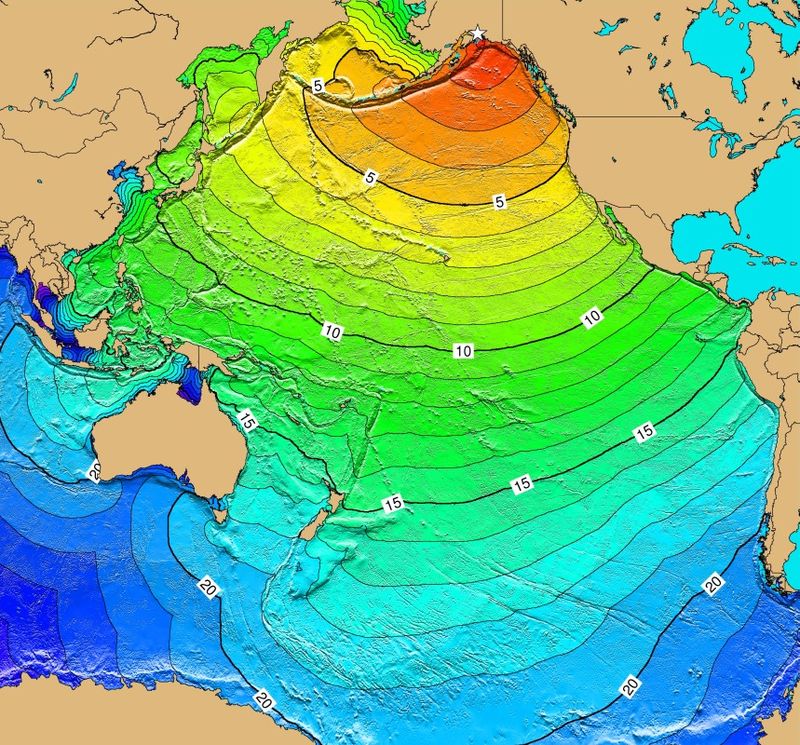
Case Study 2 1964 Port Alberni Tsunami British Columbia in a Global
Case Study 2: 1964 Port Alberni Tsunami On the afternoon of Good Friday, March 27, 1964, the strongest earthquake recorded in North America, and the second strongest ever recorded, occurred in Alaska. The Great Alaskan Earthquake was a 9.2 magnitude subduction zone (megathrust) earthquake located at a depth of approximately 25 kilometres.

A scene of the 1964 Alaska Tsunami at Port Alberni, BC, Canada. (Photo
Tsunami of 64 To reach Port Alberni, the tsunami had to travel 40 kilometres up Alberni Inlet. The inlet served to concentrate the energy of the wave. The first wave arrived about 4.5 hours after the earthquake. The wave rose 2.1 metres above the normal tide level, causing some flooding.
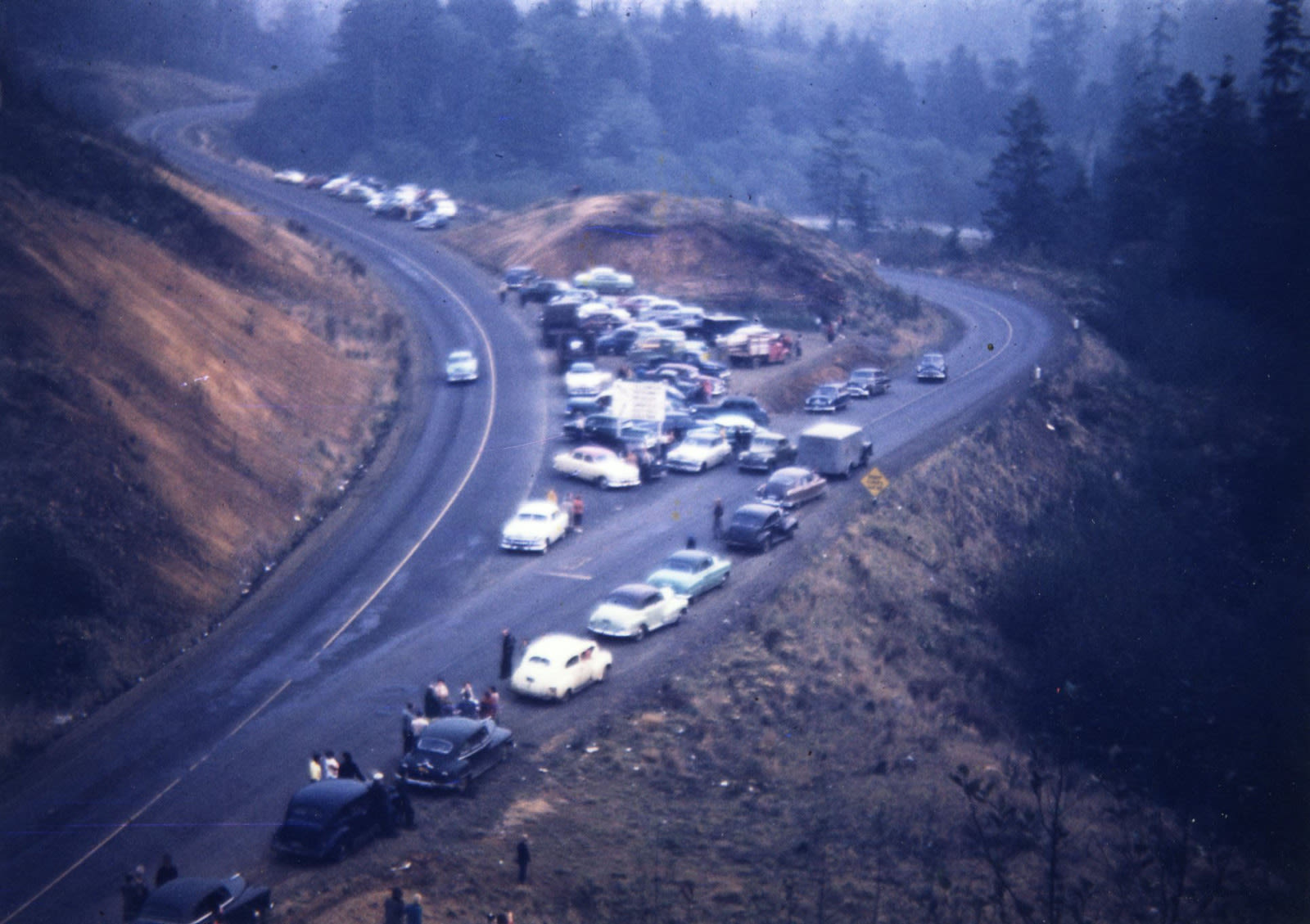
Slide Show The Great Tsunami of 1964 Portland Monthly
The Great Tsunami of 1964 Share this page Tsunamis are large waves triggered by underwater occurrences such as; earthquakes, underwater volcanoes and landslides. Tsunamis are also described as a series of waves that may be close together or up to an hour apart. They can come in the form of a very large wave, or as a surge of water.
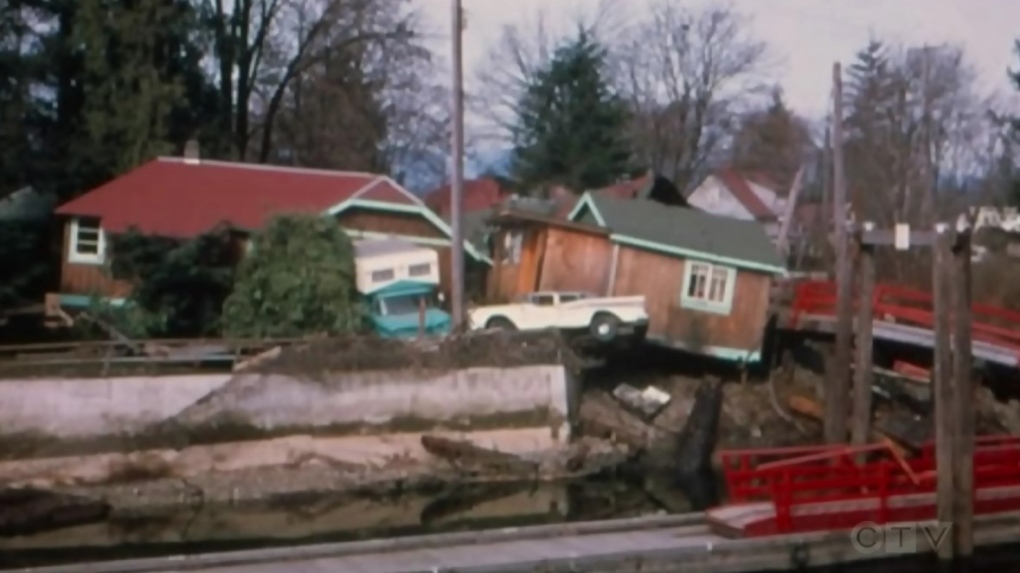
Anniversary of massive Port Alberni tsunami serves as warning Experts
WATCH: Remembering the 1964 Port Alberni tsunami | Watch News Videos Online Personalities Social Media 0:00 WATCH: Remembering the 1964 Port Alberni tsunami Videos WATCH:.

Tsunami exercise in B.C. learns from Port Alberni’s past
Economic losses in Port Alberni were $5 million in 1964 Canadian dollars. Port Alberni was the southernmost town at the head of a fjord, and so the wave rolled southeast across the Strait of Juan de Fuca, and it was recorded by the tide gauge at Neah Bay. Logs were scattered in Quilcene Bay near Hood Canal. But the main tsunami continued on.
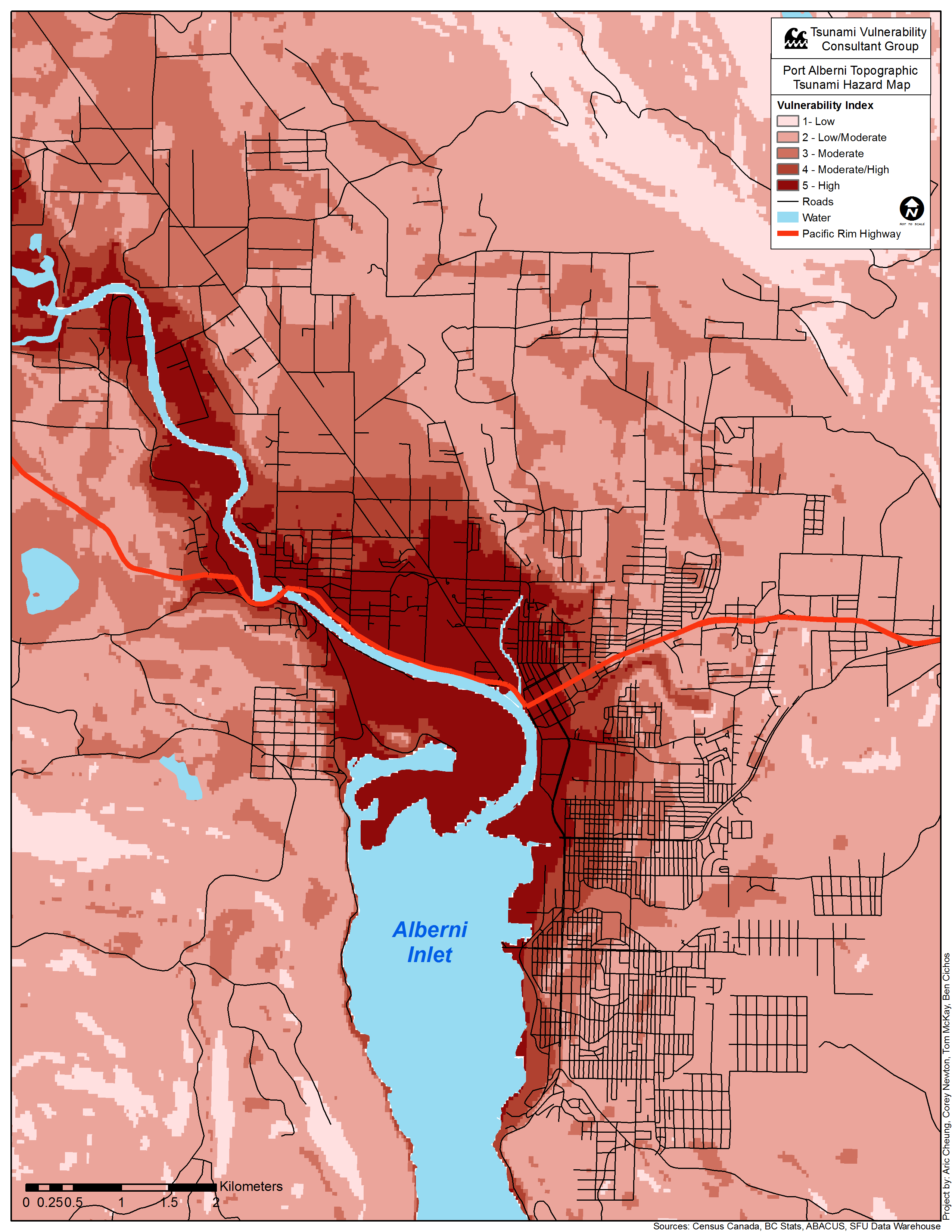
Port Alberni Tsunami Vulnerability Analysis
A massive underwater slide at Port Valdez in Prince William Sound created an 8.2 metre tsunami that destroyed the village of Chenega, killing 23 of the 68 people who lived there. Post-quake tsunamis severely affected Whittier, Seward, Kodiak and other Alaskan communities, as well as people and property in Oregon, California and British Columbia.
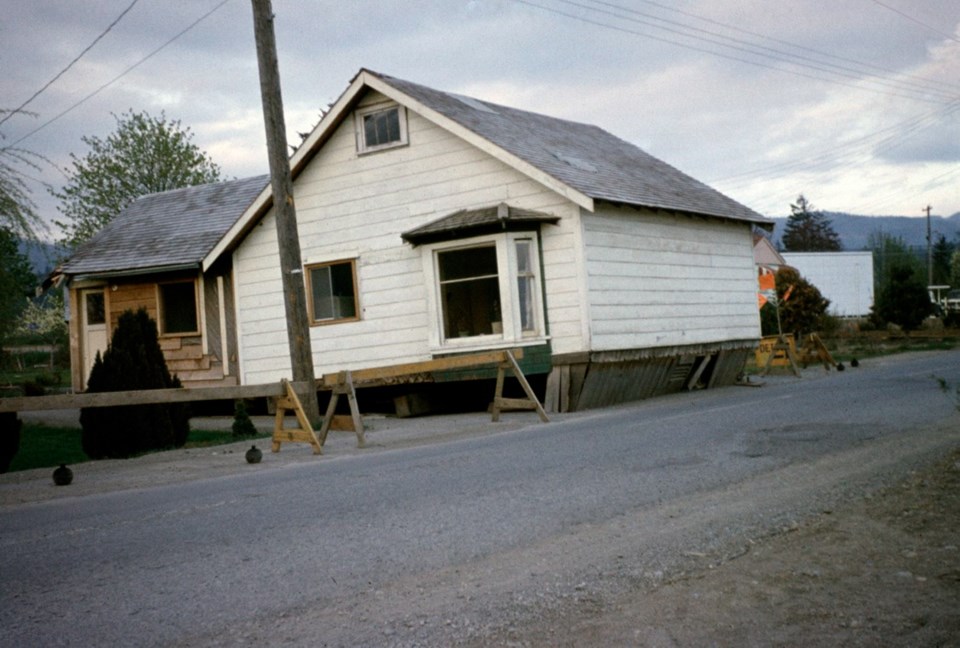
March 28, 1964 Readers share memories of Port Alberni tsunami
A massive underwater slide at Port Valdez in Prince William Sound created an 8.2 metre tsunami that destroyed the village of Chenega, killing 23 of the 68 people who lived there. Post-quake tsunamis severely affected Whittier, Seward, Kodiak and other Alaskan communities, as well as people and property in Oregon, California and British Columbia.
/arc-anglerfish-tgam-prod-tgam.s3.amazonaws.com/public/Q5H3PBXJOZE65JMSNYMVUYND6Y)
Remembering the Port Alberni tsunami The Globe and Mail
Follow | Contact Published March 27, 2023 5:35 p.m. PDT Share Monday marks the 59th anniversary of a devastating tsunami that crashed through a Vancouver Island community. The first wave hit.
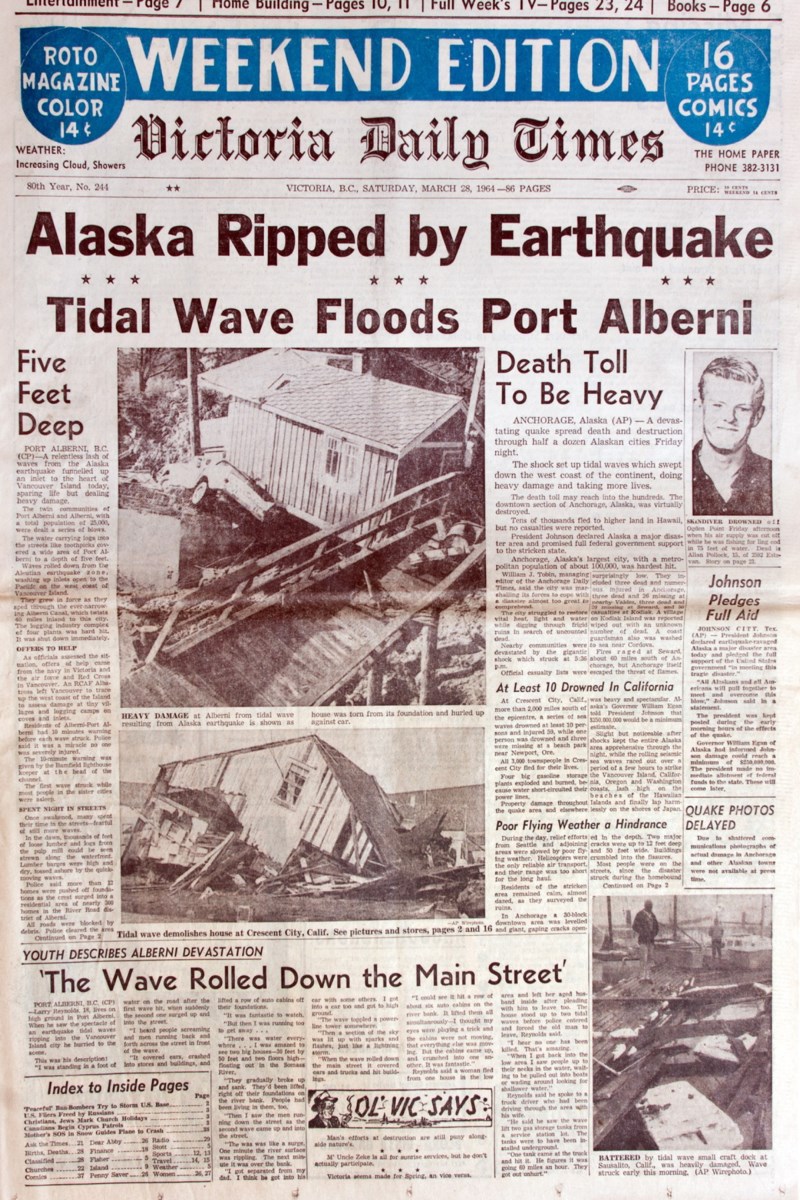
50 years after the Port Alberni tsunami Victoria Times Colonist
On Good Friday, 1964, a record breaking earthquake off the coast of Alaska sent a series of seismic waves along the coast of Vancouver Island and as far as California. Water was funnelled down the narrow Alberni Inlet, gaining momentum and speed, before hitting the Twin Cities of Alberni and Port Alberni with a series of tsunamis shortly
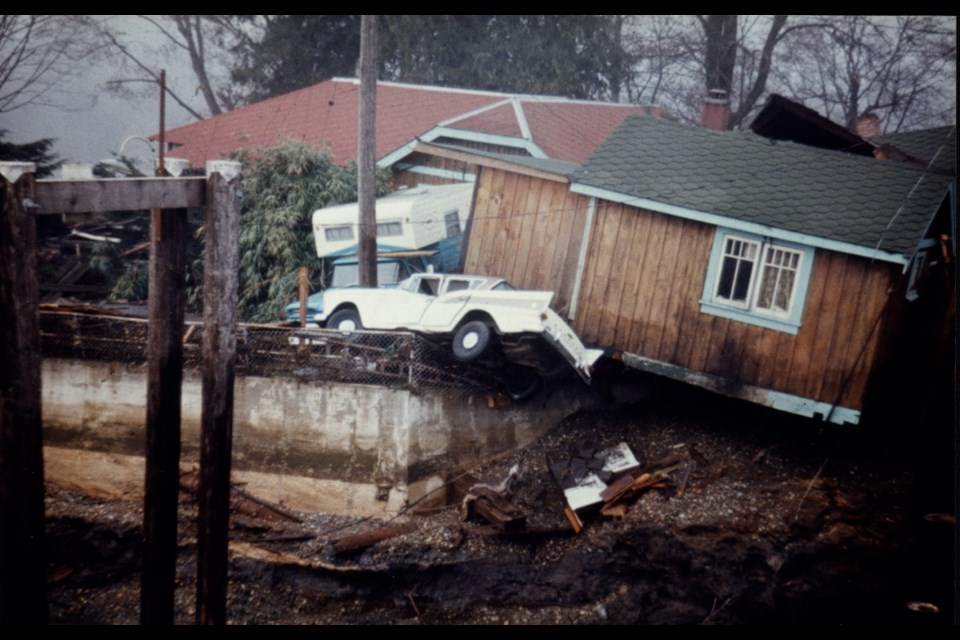
Port Alberni woman recalls fleeing 1964 tsunami in rowboat after quake
Those who experienced the 1964 Port Alberni Tsunami firsthand have amazing stories to tell - stories of bravery and fright, awe and narrow escapes, but few.
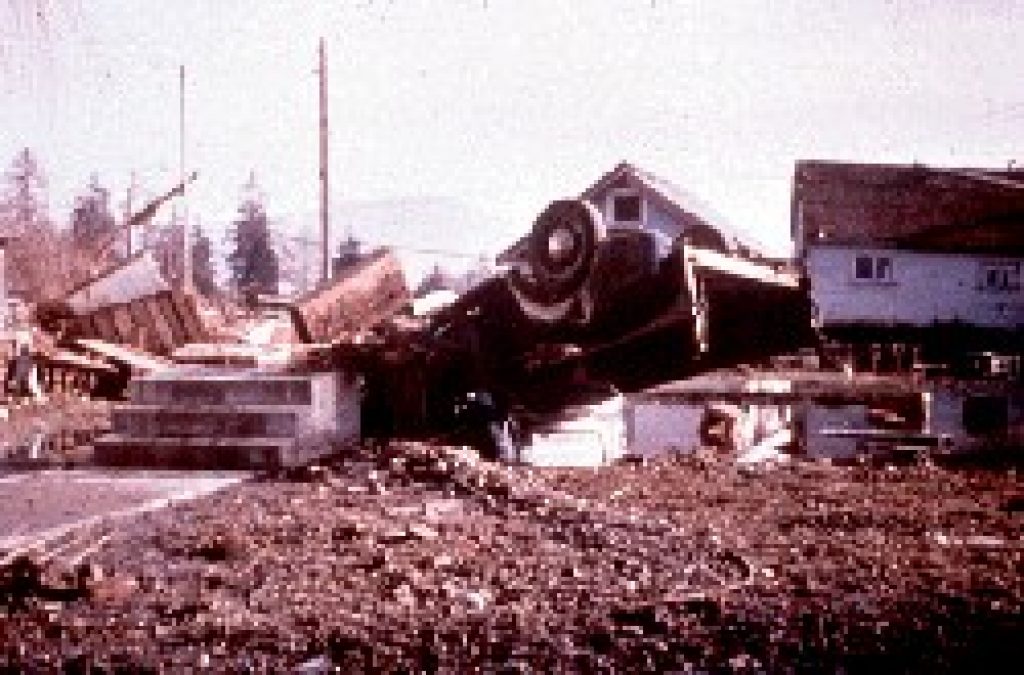
The Great Tsunami of 1964 (West Coast)
The Alberni Valley Tsunami of 1964 Source: Port Alberni Maritime Heritage Museum This month marks the 59th anniversary of one of the largest tsunami's to ever hit British Columbia's coastline. The 1964 Tsunami On March 27th, 1964 the strongest earthquake to ever hit North America occurred in Anchorage, Alaska.

Areas inundated by the 1964 Alaska and 1700 Cascadia tsunamis at Port
Main Body 5.1 - Case Study: 1964 Port Alberni Tsunami On the afternoon of Good Friday, March 27, 1964, the strongest earthquake recorded in North America, and the second strongest ever recorded, occurred in Alaska.

55th anniversary of Port Alberni's devastating tsunami
Posted March 24, 2014 4:57 pm Updated March 25, 2014 10:21 am ABOVE: From the Global BC archives - footage from the 1964 Port Alberni Tsunami. On March 28 it will have been 50 years since a.

The 1964 Alaska tsunami as recorded at Port Alberni, British Columbia
This house was pushed onto Alberni Road after a tsunami hit Port Alberni on March 28, 1964. An earthquake in Alaska 50 years ago created memories that are still vivid among those who were.

Tsunami scare exposes communication breakdown in vulnerable B.C. city
Port Alberni (/ æ l ˈ b ɜːr n i /) is a. In 1964, Port Alberni was hit by a tsunami during the Good Friday earthquake. The water rose about one foot in a minute reaching ten feet above the high-water mark. About 375 homes were damaged and 55 were washed away, however there were no injuries or fatalities.
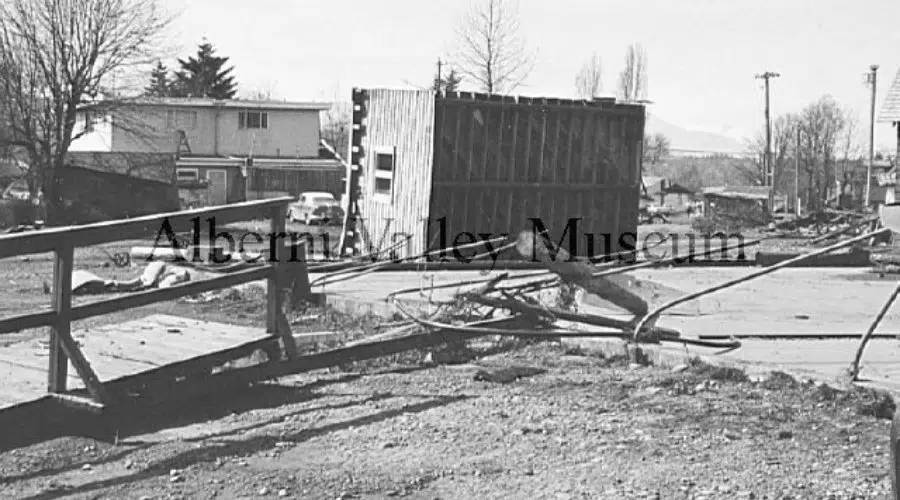
Port Alberni woman recalls fleeing 1964 tsunami in rowboat after
Chief Fire Prevention Officer, Rick Newberry takes a trip down memory lane with a first hand account of the large Tsunami that devastated Port Alberni, BC in.